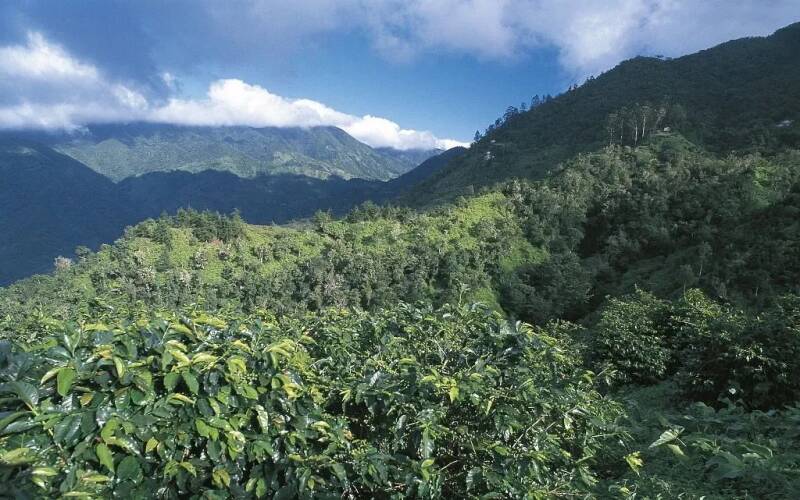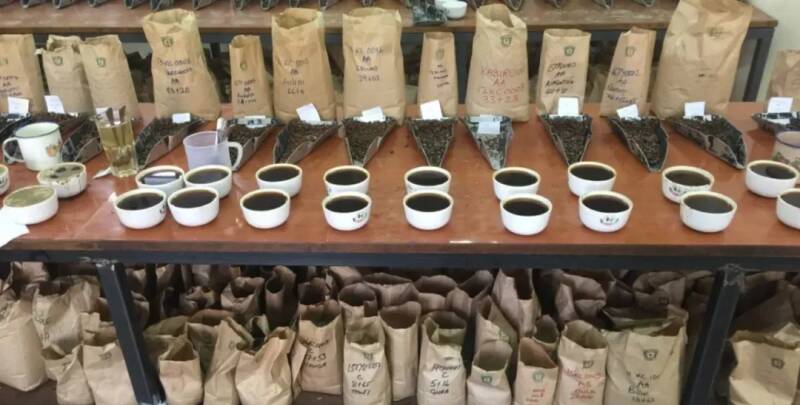Kenya's coffee exports dropped by 4% and output dropped by 6.3% due to new government policies!
Recently, the U.S. Department of Agriculture released the current situation of the coffee industry in Kenya in African countries. The report stated that due to the decrease in coffee planting area and the impact of earlier heavy rains, Kenya's coffee production in the 2024/25 marketing year is expected to be 750,000 bags (60 kg/bag), a decrease of 6.3% from the previous marketing year. Coffee exports in the 2024/25 marketing year are also expected to fall 4% to 720,000 bags.

The current coffee harvest area in Kenya is 105000 hectares. The main reason for the decrease in coffee planting area is the conversion of coffee farms into real estate. In addition, funding constraints at the Coffee Institute (the only supplier of certified growing materials) and a chronic shortage of certified growing materials have hindered the establishment of new coffee farms. Due to limited access to investment and promotion opportunities for farmers, final yields fell.
In July last year, the Kenyan government officially implemented the Coffee Regulations 2019 and the Capital Markets (Coffee Exchanges) Regulations 2020. According to these regulations, companies are prohibited from holding multiple licenses throughout the value chain. The marketing reform effectively terminated the investment, expansion and certification support programs previously provided by revoked marketing agents.

In addition, as part of Kenya's government reforms, all coffee payments sold through the Nairobi Coffee Exchange (NCE) must now be processed through the recently established Direct Settlement System (DSS) platform, managed by Kenya Cooperative Bank.
As DSS became fully operational, there were excessive delays in payments. In addition, several coffee processing plants in Kenya (including the world-renowned NKG company) have ceased operations due to new licensing requirements.
In addition, farmers now have to process coffee in various processing plants owned and operated by the New Kenya Planting Cooperative Alliance (NKPCU) or cooperatives, causing cargo accumulation and logistics challenges for some small factories. As a result, some coffee cherries have rotted due to delayed processing.
This policy also affects Kenya's coffee exports and prices. Since the reform began in July 2023, coffee sales and prices at the Nairobi Coffee Exchange (NCE) have dropped significantly, reaching a record low in August 2023. Only 3038 bags of coffee (50 kg/bag) were sold, which only recovered in March 2023. Moreover, the recent increase in international coffee prices has caused export volume and export prices to rebound. Therefore, Kenya's coffee export volume is expected to reach 720,000 bags in the 2024/25 marketing year.
Currently, the United States is the main export destination of Kenya's coffee, followed by Belgium, Germany, South Korea, Sweden, etc. Since most of Kenya's export destinations are European countries in addition to the United States, coffee exports to the EU need to comply with the new No Deforestation Act (EUDR), which will prompt the Kenyan government to provide funds to carry out necessary land mapping.
Important Notice :
前街咖啡 FrontStreet Coffee has moved to new addredd:
FrontStreet Coffee Address: 315,Donghua East Road,GuangZhou
Tel:020 38364473
- Prev

Costa Rica| Introduction to the Blue Volcano Manor in the Western Valley Production Area
In the coffee growing belt, the Americas are located in the coffee growing belt. There are many famous coffee growing countries in the Americas, such as Panama, Honduras, Costa Rica, Guatemala, etc. Among them, Costa Rica is the first in Central America. Famous for growing coffee and bananas for commercial value. Costa
- Next

Lucky Co-branded Materials knew in advance, who was responsible for leaking internal information?
▲ Click to pay attention| Daily Boutique Coffee Culture Magazine Coffee Factory Recently, the film and television series "The Story of the Rose" has quickly become the focus of discussion on various platforms after it was broadcast. Even if many netizens have not followed the drama, they have more or less heard of this highly popular work from hot searches on the Internet. And yesterday morning, social
Related
- What grade does Jamaica Blue Mountain No. 1 coffee belong to and how to drink it better? What is the highest grade of Blue Mountain coffee for coffee aristocrats?
- What are the flavor characteristics of the world-famous coffee Blue Mountain No. 1 Golden Mantelin? What are the characteristics of deep-roasted bitter coffee?
- Can I make coffee a second time in an Italian hand-brewed mocha pot? Why can't coffee be brewed several times like tea leaves?
- Hand-brewed coffee flows with a knife and a tornado. How to brew it? What is the proportion of grinding water and water temperature divided into?
- What is the difference between Indonesian Sumatra Mantinin coffee and gold Mantinin? How to distinguish between real and fake golden Mantelin coffee?
- What does bypass mean in coffee? Why can hand-brewed coffee and water make it better?
- Unexpected! Ruixing Telunsu lattes use a smoothie machine to foam milk?!
- % Arabia's first store in Henan opens into the village?! Netizen: Thought it was P's
- Does an authentic standard mocha coffee recipe use chocolate sauce or powder? Mocha Latte/Dirty Coffee/Salty Mocha Coffee Recipe Share!
- What is the difference between Vietnam egg coffee and Norway egg coffee? Hand-brewed single product coffee filter paper filter cloth filter flat solution!

